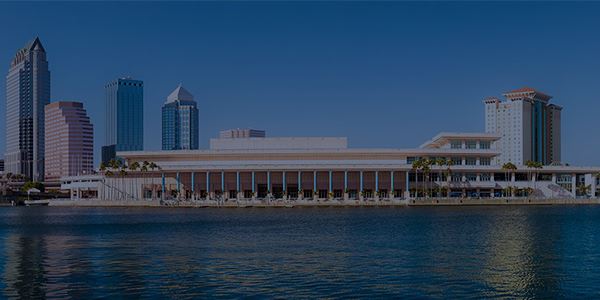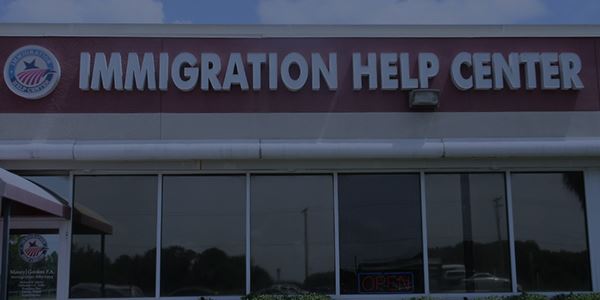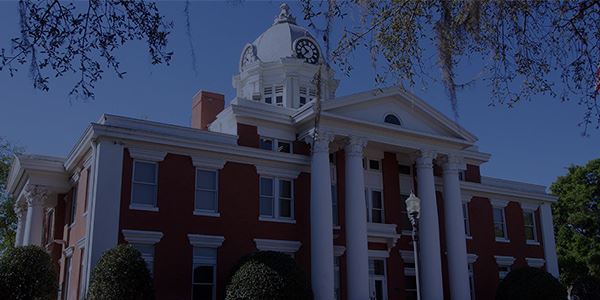
Tampa Marriage Visa Attorney
Providing Compassionate & Comprehensive Legal Support
If you are a U.S. citizen, you may be eligible to bring your fiancé(e) or spouse to the United States on a marriage visa. If you are a lawful permanent resident (LPR), you may be eligible to bring your spouse to the United States on a marriage visa as well, but the process will differ somewhat.
At Maney | Gordon | Zeller, P.A., we have been helping individuals and families with all types of marriage-based immigration matters for decades. Our Tampa marriage visa attorneys have a deep understanding of the applicable laws and processes, and we know what it takes to overcome the various challenges that may arise. We can guide you through every stage of the process and work to help you and your loved ones achieve your immigration goals.
To schedule an initial consultation with a Tampa marriage visa lawyer at our firm, call (800) 708-4399 or contact us online.
What is a Marriage Visa?
A marriage visa is a type of visa that allows a foreign national to enter the United States to get married to a U.S. citizen or lawful permanent resident (LPR). Depending on the circumstances, a marriage visa can be used to bring a fiancé(e) to the United States to get married or to bring a spouse to the United States after the marriage has already taken place. In either case, the visa will be valid for a limited period, and the foreign national will need to apply for permanent residency (a green card) if he or she wishes to remain in the United States.
Understanding the nuances between different types of marriage visas is critical, as each has specific benefits and constraints. For instance, choosing the most suitable visa type can mean less waiting time and more straightforward applications. It is essential for applicants to consult with qualified legal professionals who are well-versed with the intricacies of U.S. immigration laws to determine the best path for their unique situation.
What Are the Different Types of Marriage Visas?
There are several different types of marriage visas, including:
- CR-1 Visa (Conditional Resident): This visa is for spouses of U.S. citizens. It grants conditional permanent resident status to the foreign spouse upon entry into the U.S. Conditional permanent resident status means that the immigrant spouse is granted a two-year conditional green card. After two years, the couple must jointly petition to remove the conditions on the green card to obtain permanent residency without conditions.
- IR-1 Visa (Immediate Relative): Similar to the CR-1 visa, the IR-1 visa is also for spouses of U.S. citizens. However, unlike the CR-1 visa, the IR-1 visa grants the immigrant spouse immediate permanent resident status upon entry into the U.S. This means that the immigrant spouse receives a permanent green card upon arrival in the U.S., without having to go through the conditional residency period.
- K-1 Visa: This visa is for fiancé(e)s of U.S. citizens. It allows the foreign fiancé(e) to enter the United States to marry their U.S. citizen sponsor within 90 days of arrival. After marriage, the foreign fiancé(e) can apply for adjustment of status to become a lawful permanent resident (green card holder).
- K-2 Visa: This visa is for the unmarried children (under 21 years old) of a K-1 visa applicant. It allows them to accompany their parent to the United States. After the marriage between the K-1 visa holder and the U.S. citizen sponsor, the children can apply for adjustment of status to become lawful permanent residents as well.
- K-3 Visa: A nonimmigrant visa designed to facilitate the reunification of married couples in the United States. It is intended for the foreign spouse of a U.S. citizen who is awaiting approval of an immigrant visa petition (Form I-130) and wishes to enter the United States while the immigrant visa process is pending. The K-3 visa allows the foreign spouse to enter the U.S. temporarily to live with their U.S. citizen spouse while waiting for the immigrant visa petition to be processed.
Each of these visas has its own unique requirements and application process. Understanding the procedural differences helps in preventing any potential delays. By evaluating personal circumstances, visa applicants can pursue the option that minimizes disruptions and maximizes their chance to be together promptly in the U.S.
The Role of Maney | Gordon | Zeller, P.A. in Your Immigration Journey
Choosing the right legal partner can make a significant difference in your immigration process. At Maney | Gordon | Zeller, P.A., our goal is to make this journey as smooth and stress-free as possible. With our dedicated team by your side, you hold a strategic advantage with our deep understanding of immigration laws backed by decades of experience in the Tampa area. We emphasize customized strategies to help you and your family achieve seamless integration into American life.
Our firm not only navigates the legal pathways but also prioritizes the emotional aspects of immigration. We understand the importance of family unity and offer compassionate support throughout. Having gone through this process with numerous clients, we ensure that every detail is meticulously addressed, minimizing the potential for delays or denials. Clients can trust that their futures are in capable, caring hands.
How Do I Apply for a Marriage Visa?
The specific steps required to apply for a marriage visa will depend on your circumstances and the type of visa you will be applying for. In general, however, the process will involve the following:
- Step 1: Submit a Petition – To begin the process, you will need to submit a petition to U.S. Citizenship and Immigration Services (USCIS). If you are applying for a K-1 visa, you will need to file Form I-129F, “Petition for Alien Fiancé(e).” If you are applying for a K-3 visa, you will need to file Form I-129F, “Petition for Alien Fiancé(e),” and Form I-130, “Petition for Alien Relative.” If you are applying for an IR-1/CR-1 visa, you will need to file Form I-130, “Petition for Alien Relative.”
- Step 2: Wait for Your Petition to Be Approved – After you submit your petition, USCIS will review it to determine if you are eligible to sponsor your fiancé(e) or spouse for a marriage visa. If your petition is approved, it will be sent to the National Visa Center (NVC).
- Step 3: Submit the Necessary Documents – Once your petition is approved, the NVC will ask you to submit the necessary documents to support your application. This will include various forms, financial documents, and supporting evidence. The specific documents you will need to submit will depend on the type of visa you are applying for.
- Step 4: Attend an Interview – After you submit your documents, the NVC will confirm that they are in order and then schedule your visa interview. You and your fiancé(e) or spouse will need to attend this interview together at a U.S. embassy or consulate. You will need to bring your passport and any other required documents with you to the interview.
- Step 5: Wait for Your Visa to Be Issued – After your interview, the embassy or consulate will review your application and determine if you are eligible to receive a visa. If you are eligible, the visa will be issued, and you will be able to enter the United States.
- Step 6: Travel to the United States – After the visa is issued, you will be able to travel to the United States. If you are applying for a K-1 visa, it will be valid for 90 days, and you will need to get married within this time frame. If you are applying for a K-3 visa, it will be valid for two years, and you will need to apply for a green card within this time frame. If you are applying for an IR-1/CR-1 visa, it will be valid for six months, and you will need to apply for a green card within this time frame.
Once these steps are completed, the continuation of meticulous documentation is crucial. Required forms and supplemental materials should be thoroughly reviewed for accuracy to avoid delays. It is beneficial to stay updated on policy changes that may influence visa procedures, underscoring the importance of ongoing guidance from seasoned immigration attorneys.
Common Challenges in the Marriage Visa Process
The marriage visa process can present several challenges, often stemming from complex paperwork and stringent requirements. Common issues include discrepancies in documentation, such as mismatched details between forms and supporting documents. These can lead to requests for further evidence, thereby delaying the approval process. Another challenge is meeting the financial requirements, which include proving the ability to financially support the incoming spouse.
Additionally, applicants must prepare for potential interviews, which can be stressful and demanding. Interview questions often require precise and truthful answers, and any misunderstandings can complicate matters. Navigating these hurdles with professional assistance can be crucial. Experienced immigration attorneys anticipate these challenges, providing strategies to mitigate risks and ensure that applications are complete and convincing to immigration officials.
What Are the Eligibility Requirements for a Marriage Visa?
The eligibility requirements for a marriage visa will depend on the type of visa you are applying for. In general, however, you will need to be a U.S. citizen or lawful permanent resident (LPR) to apply for a marriage visa. You will also need to be legally married to your fiancé(e) or spouse, and you will need to be able to prove that your marriage is bona fide (i.e. not fraudulent) and that you and your spouse are legally eligible to marry.
In addition to these basic requirements, having adequate financial support is often necessary to meet the income guidelines set forth by the U.S. government. This ensures that the incoming spouse will not become a public charge. Furthermore, potential health screenings and background checks are part of the process to confirm that entrants will not pose any legal or medical risks upon entering the United States.
How Long Does It Take to Get a Marriage Visa?
The amount of time it takes to get a marriage visa will depend on various factors, including the type of visa you are applying for and the specific circumstances of your case. In general, however, you can expect the process to take around 10 to 12 months if you are applying for a K-1 visa and around 12 to 14 months if you are applying for a K-3 or IR-1/CR-1 visa.
There are additional circumstances that may extend processing times, such as extended review periods for complex cases or increased wait times due to visa backlogs. Applicants should account for these potential delays and start the visa application process as early as possible. By working with knowledgeable legal representatives, applicants can receive strategic advice to potentially streamline their application, reducing unnecessary hold-ups.
How a Tampa Marriage Visa Attorney Can Help
When it comes to applying for a marriage visa, it is important to work with an experienced marriage visa attorney who can guide you through the process and help you avoid costly mistakes. At Maney | Gordon | Zeller, P.A., we can help you complete and submit your application, gather the necessary documents, and prepare for your interview. We can also help you overcome any challenges that may arise and work to ensure that your case proceeds as quickly and smoothly as possible.
Our commitment to thorough client support enhances the likelihood of a successful visa petition. We stay continuously informed of policy updates and legal interpretations to advise our clients effectively. By choosing our firm, you gain a trusted partner equipped to handle the unpredictable complexities of immigration law, providing reassurance every step of the way.
Frequently Asked Questions About Marriage Visas
What Are the Common Pitfalls to Avoid When Applying for a Marriage Visa?
When applying for a marriage visa, it's important to be aware of common pitfalls that could delay or jeopardize your visa. One major mistake is failing to provide all required documents or submitting incomplete forms. Errors in paperwork can result in delays or even denial of the application. It's essential to cross-check all the information to ensure it aligns across all submitted forms.
Another common issue is not adequately preparing for the visa interview. If the applicant cannot effectively communicate the authenticity of the relationship, it could raise concerns with immigration officials. Therefore, rehearsing potential questions and providing consistent, honest answers are critical. Working with a knowledgeable attorney to simulate an interview can be an invaluable resource, helping to anticipate and answer challenging questions effectively.
What Should I Expect in a Marriage Visa Interview?
The marriage visa interview is a critical step in the application process, where the immigration officer will assess the authenticity of your relationship. You should be prepared to answer questions about your relationship history, such as how you met, significant events involving both parties, and future plans as a couple. Your responses should be consistent and align with the documentation provided in your application.
Additionally, the interviewer may ask questions aimed at both you and your spouse to ascertain that the relationship is genuine. Both parties should rehearse answers to common questions and understand each other's personal details to prevent discrepancies. Being honest and open during the interview is vital, as any perceived dishonesty could adversely affect the application outcome.
Contact us by calling (800) 708-4399 today to learn more about our marriage-based immigration services.

Why Choose Maney | Gordon | Zeller?
-
We Have Nine Offices Across the U.S. Dedicated to Your American Dream
-
We Are Licensed to Practice Law at the United States Supreme Court Level
-
We Are Licensed to Practice Law in Sixteen States & Four Countries
-
We Have Board-Certified* Immigration Specialists on Our Legal Team
-
We Have Served Hopeful Immigrants for Over 40 Consecutive Years
-
We Are Nationwide Authorities on the Law & Politics of Immigration

A member of our team will be in touch shortly to confirm your contact details or address questions you may have.





